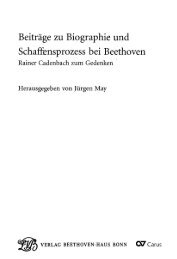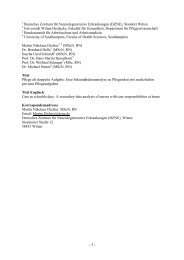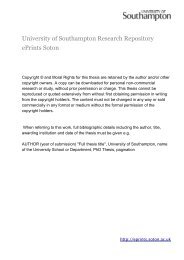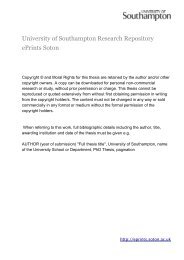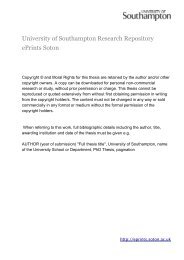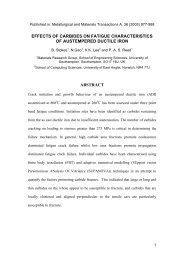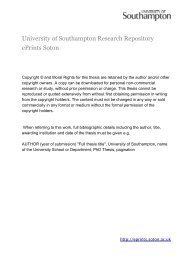obscenites renaissantes - ePrints Soton - University of Southampton
obscenites renaissantes - ePrints Soton - University of Southampton
obscenites renaissantes - ePrints Soton - University of Southampton
You also want an ePaper? Increase the reach of your titles
YUMPU automatically turns print PDFs into web optimized ePapers that Google loves.
SINGING THE COURTLY BODY: THE CHANSON<br />
LASCIVE AND THE PERFORMANCE OF OBSCENITY<br />
As Hugh Roberts points out, Erasmus's Institution <strong>of</strong> Christian Matrimony (1^16)<br />
contains the most wide-ranging discussion <strong>of</strong> obscenity <strong>of</strong> the entire sixteenth century. It<br />
is all the more interesting, then, that the anecdote with which it opens - about a noblewoman<br />
who accidentally swears in church - is immediately followed by an attack on the<br />
purveyors <strong>of</strong> erotic stories and songs. Girls need protection not only from hearing swear<br />
words, but from other sonorous forms <strong>of</strong> obscenity. Erasmus describes how storytellers<br />
drip poison into tender ears, imagining the obscene as literally invading the listeners'<br />
bodies in order to corrupt their minds. But in the case <strong>of</strong> music, instead <strong>of</strong> defending<br />
girls from these incursions, parents misguidedly believe that familiarity with obscene<br />
songs will enhance their daughters' standing within a courtly economy <strong>of</strong> social grace:<br />
In some countries these days, as a sort <strong>of</strong> annual ritual, new songs are published for<br />
girls to learn. Their themes are something like - a husband deceived by his wife,<br />
a girl escaping her parents' vigilance, a secret tryst arranged with a lover. [...] To<br />
these poisonous tales are added words <strong>of</strong> such obscenity, through euphemisms<br />
and innuendo, that pure filth could not be filthier. A lot <strong>of</strong> people, especially in<br />
Flanders, earn a living from such stuff; if the law were more vigilant, the authors <strong>of</strong><br />
these lullabies would be flogged by the hangman, and made to sing dirges, not dirty<br />
songs. And yet these brazen corrupters <strong>of</strong> youth make a living from their crimes,<br />
and there are even parents who think that civility consists, in part, that their<br />
daughters should not be ignorant <strong>of</strong> such songs.'<br />
It is not just the immoral stories and filthy words that constitute the obscenity <strong>of</strong> these<br />
pieces. The music alone is able to communicate obscene content through a process<br />
likened to physical gesture:<br />
Translation adapted from Institution <strong>of</strong> Christian Matrimony, trans, by Michael J. Heath,<br />
Collected Works <strong>of</strong> Erasmus, LXIX, Spiritualia and Pastoralia, ed. by John W. O'Malley and<br />
Louis A. Peraud (Toronto; <strong>University</strong> <strong>of</strong> Toronto Press, 1999), p. 415. For the Latin text see<br />
Erasmus, Opera omnia (Leiden: Clericus, 1703-1706; reprint, Hiidesheim: Olms, 1961), V,<br />
7i7f-7i8c; it is reproduced and extensively commented in Jean-Claude Margolin, Erasme et<br />
la musique (Paris: J. Vrin, 1965), pp. 16-23.






